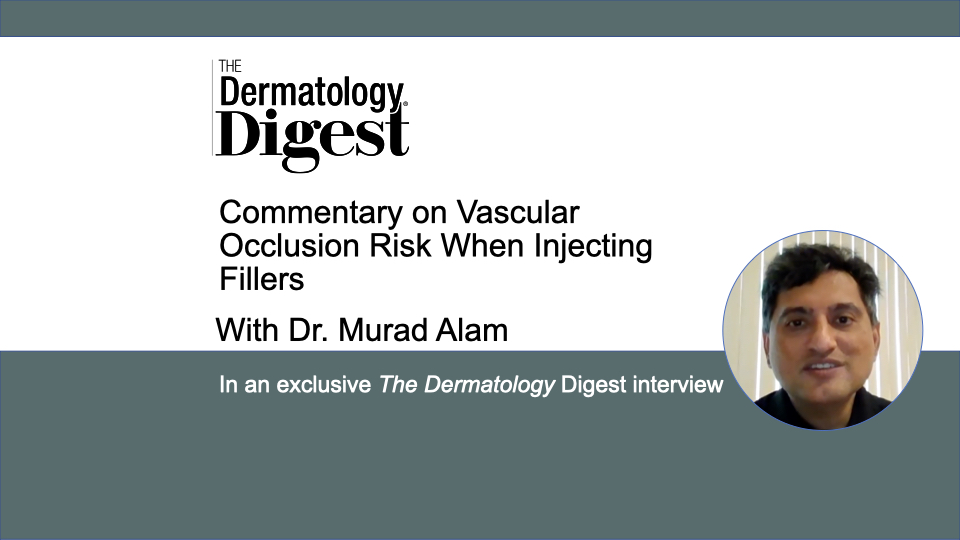Dr. Murad Alam discusses recognizing and managing vascular occlusions from dermal filler injections.
Murad Alam, MD, Vice Chair, Chief of Cutaneous and Aesthetic Surgery, Professor of Dermatology, Feinberg School of Medicine, Northwestern University, Chicago, Ill.
In the context of skin fillers, Dr. Alam says vascular occlusion happens in one of two ways: either filler enters a blood vessel through a nick or perforation, or it surrounds and compresses a vessel thereby preventing blood flow.
Although the risk of vascular occlusion is extremely low whether injecting with a needle or a cannula, as Dr. Alam and coauthors describe in their retrospective cohort study recently published in JAMA Dermatology, vascular occlusions happen.
In this video interview, Dr. Alam describes the characteristics of vascular occlusion, common challenges in identifying an occlusion, and tips for educating ancillary staff that will help manage possible occlusions.
Reference
Alam M, Kakar R, Dover JS, et al. Rates of Vascular Occlusion Associated with Using Needles vs Cannulas for Filler Injection. JAMA Dermatol. 2021 Feb 1;157(2):174-180.


